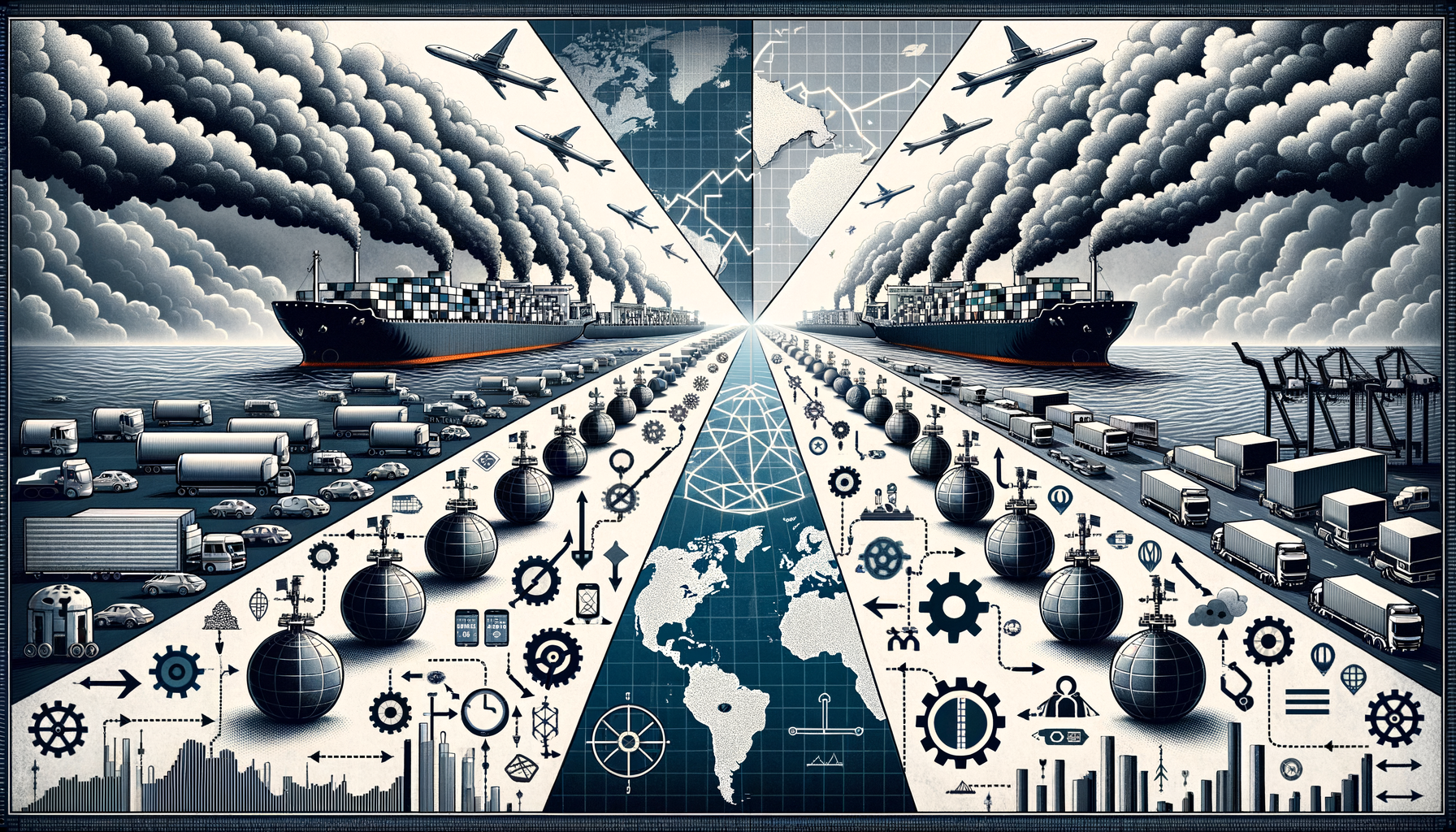“Impact of Red Sea Shipping Disruption on Global Growth: Insights from Maersk CEO”
The global economy is facing a potential slowdown due to the staggering disruption in Red Sea shipping lanes, as warned by a leading figure in the maritime industry. A situation that was initially considered a temporary glitch seems to pose a long-term threat to the world economy, according to the CEO of a globally renowned shipping firm.
The shipping industry plays an integral role in global trade, with an estimated 80% of the world’s goods transported by sea, primarily via major shipping lanes like the Red Sea. Hence, any disruption to this essential maritime artery could significantly impact the global economy. Factors such as geopolitical instability, piracy, and environmental crises can lead to obstacles in these water routes.
The Red Sea appears to thread together various channels of the world economy because of its strategic location. As it connects the Indian Ocean to the Mediterranean Sea through the Suez Canal, this maritime artery links Asia, Europe, and Africa’s trade routes. Any blockage or delay at this junction can create a ripple effect on the global supply chain, affecting countless nations and billions of people.
According to the executive, tens of thousands of ships traverse the Red Sea annually, each loaded with goods for various markets worldwide. This path directly influences the flow of a substantial section of total global trade, so any significant delay in this route could result in severe knock-on effects for international trade, ultimately impacting global economic growth.
Reflecting on a recent incident that shook the maritime industry, one gigantic cargo ship running aground in the Suez Canal resulted in a six-day blockage that disrupted the global supply chain. It caused an economic shake-up due to the unexpected delay of hundreds of ships and their precious cargo. This incident shed light on the fragility of our interdependent global economy and the significant role maritime trade routes play.
The current interruption in the Red Sea shipping lanes is shrouded in geopolitical reasons rather than accidental ones. This situation could potentially escalate into a larger threat sparked by geopolitical tensions simmering globally. As international relationships fluctuate, so do their consequential impacts on global trade and economy.
When examining the potential economic impact, specific industries may bear a more significant burden than others. High-value industries like automotive, electronics, and luxury goods, which rely heavily on just-in-time manufacturing and shipping, could suffer substantial losses. Other sectors like oil and commodities, which also extensively use sea routes, could see price hikes due to delayed shipments and increased costs.
Additionally, the increased cost and scarcity of shipping containers due to the disruption could further aggravate the situation. This issue may lead to increased prices for consumers, owing to the additional cost of these irregularities being transferred down the supply chain.
An ongoing consequence of the Red Sea disruption is the diversion of ships to other longer routes, which not only means extra time but also increases fuel costs and carbon emissions. In an era where sustainability concerns are at the forefront of corporate agendas, this may be perceived negatively by environmentally conscious consumers and investors.
Another concern is the possible rise in insurance costs for ships navigating via the Red Sea due to the increased security risks. These additional costs could also put pressure on shipping costs, contributing to inflationary pressures.
However, the CEO asserts that caution must be the guiding principle in turbulent times like these. Businesses should prepare for possible disruptions and adjust their expectations and operations accordingly. For some, diversifying their supply chains could be an essential strategy, while others may look into stockpiling key items to buffer against any potential shortages.
While it’s not within the shipping industry’s scope to control geopolitical tensions or curb piracy, companies can still adopt certain strategies to weather the storm. These may include diversifying shipping routes, working closely with local governments, and tracking the data and trends coming from the problematic areas.
The Red Sea disruption’s consequences underscore the importance of continuous efforts in managing the global supply chain seamlessly. The need for comprehensive and cooperative regulations ensuring the safety and security of sea routes has never been higher.
Overall, the current disruption in the Red Sea highlights the intensely complex and interwoven nature of global trade, the integral role of maritime transportation, and the precarious balance between local conflicts and global economic growth.
It’s imperative now more than ever to ensure that the world’s sea routes remain open, safe, and secure. Transnational collaborations among governments, shipping companies, and other stakeholders are crucial to achieve this and safeguard the global economy against future disruptions. Only through concerted efforts can we collectively overcome challenges, ensuring the free flow of goods, and driving global prosperity.

